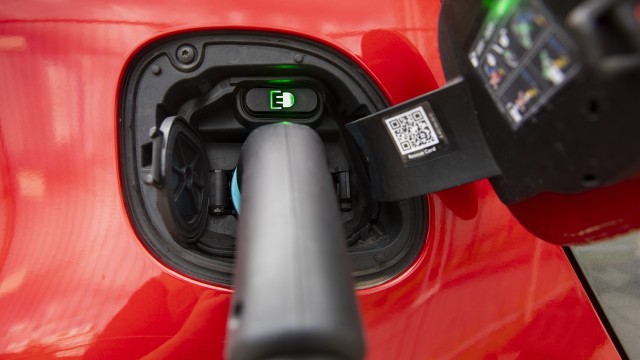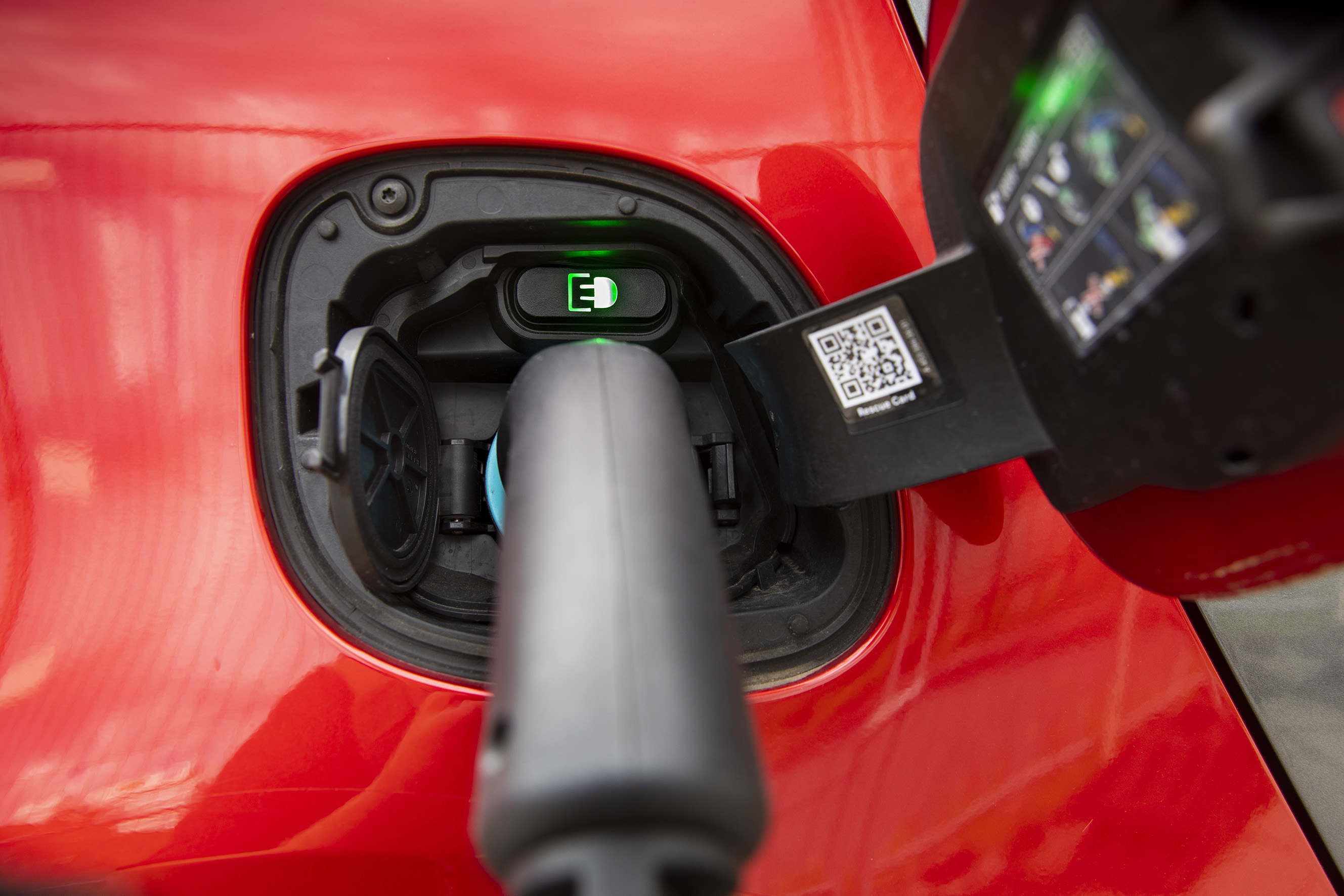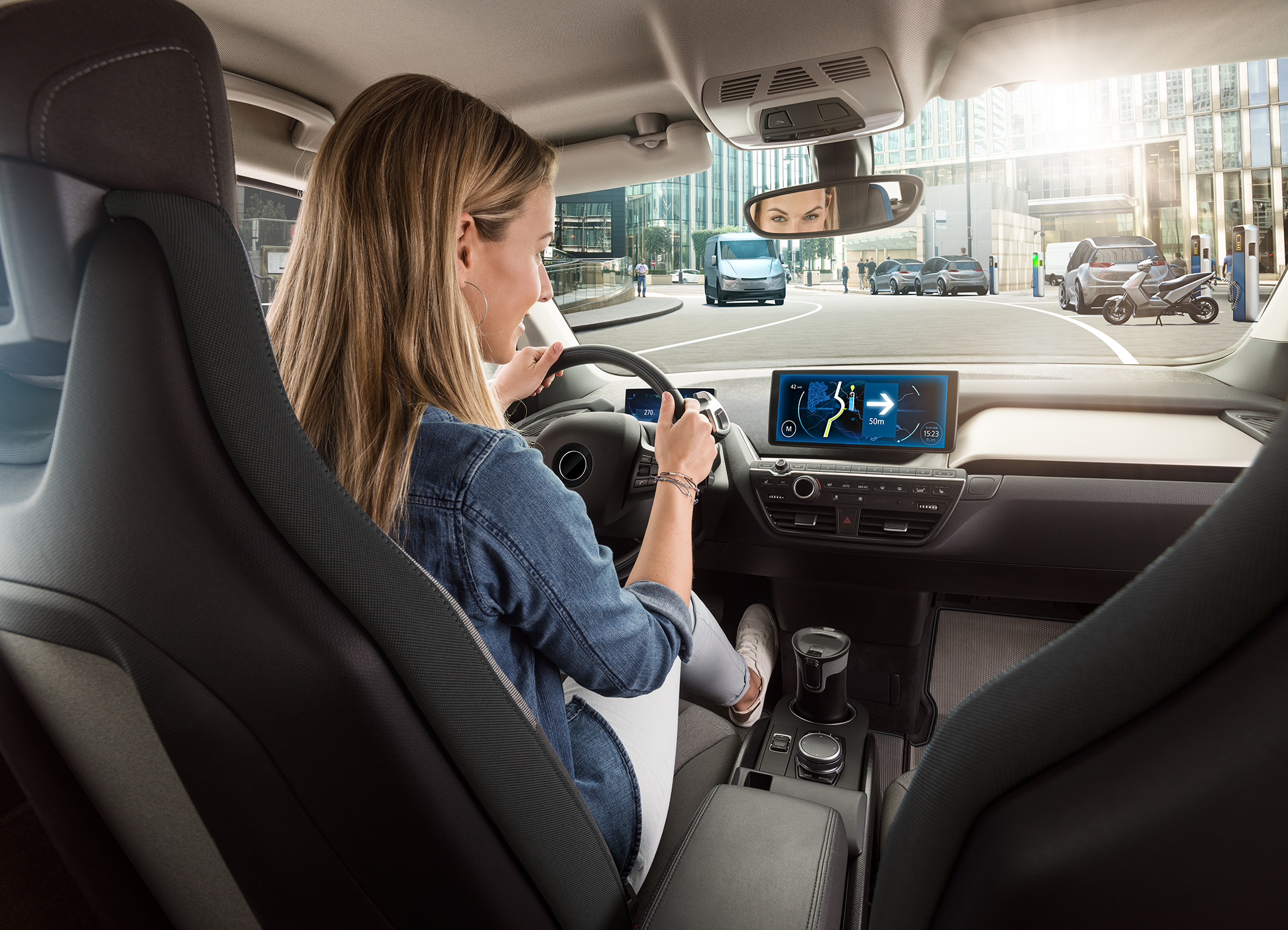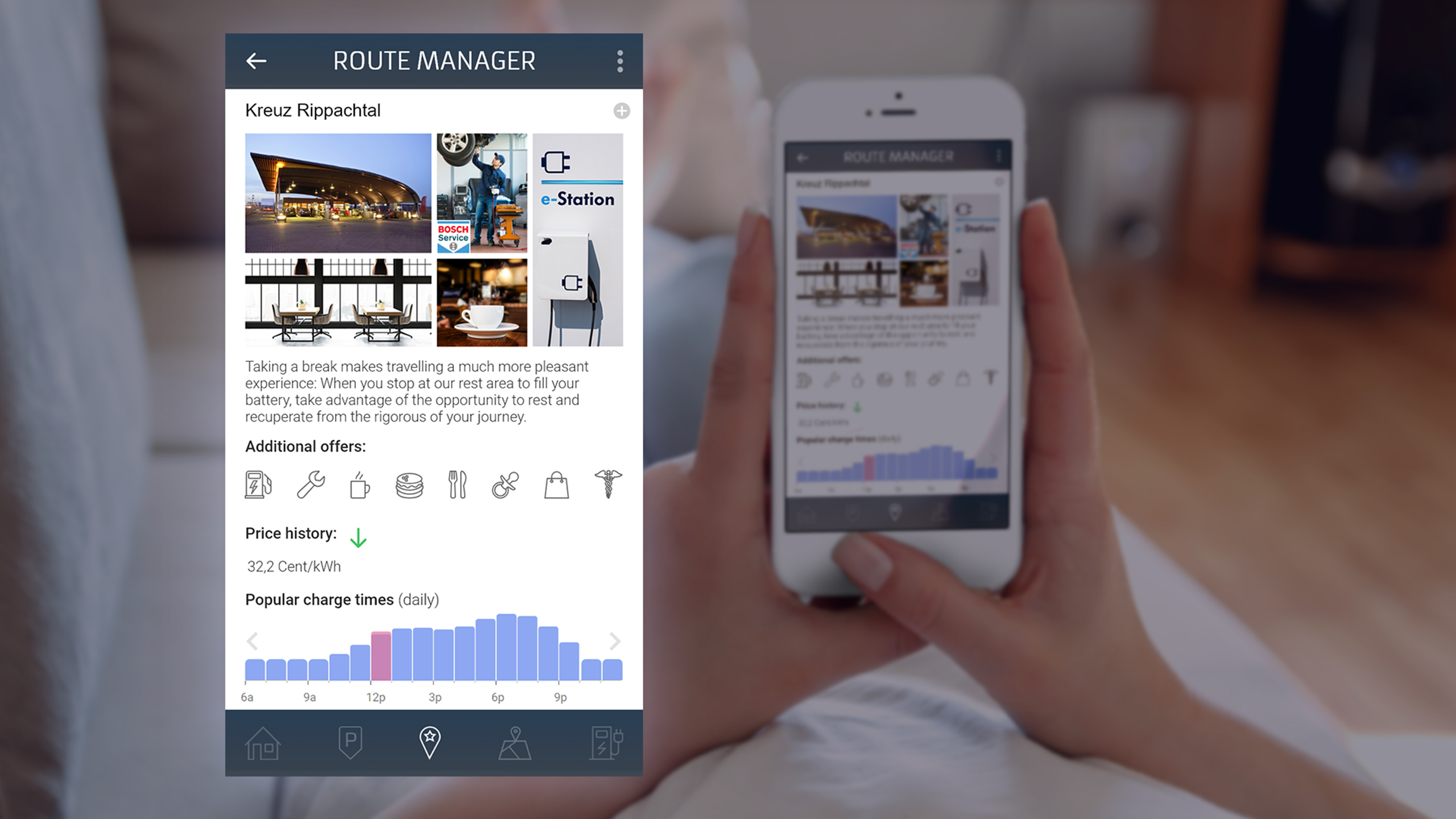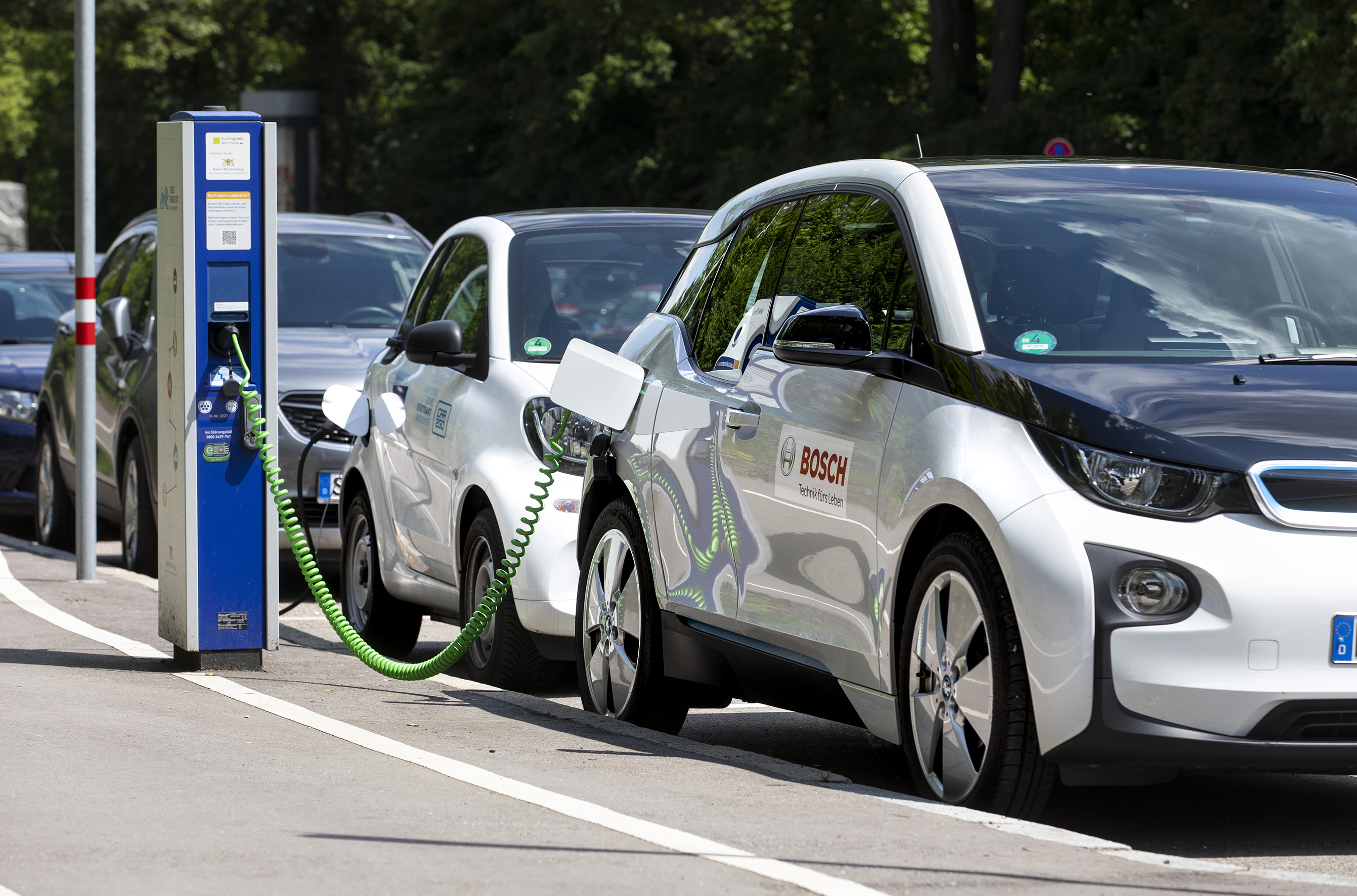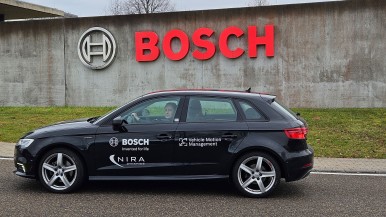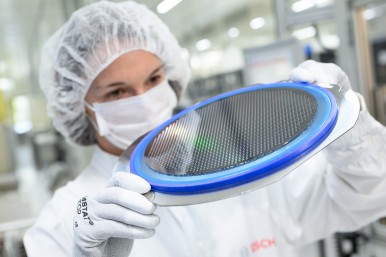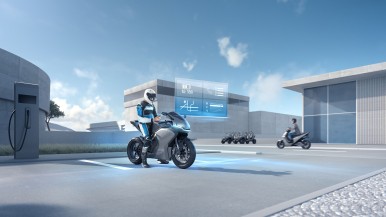Stuttgart, Germany – Fuss-free recharging. In a nutshell, there is nothing drivers of electric cars want more. They want to quickly find a vacant charge spot, access it without the hassle of authorization and passwords, pay for the electricity without fuss, and make good use of the time it takes to recharge. In reality, the picture is a different one: drivers of electric cars have an average of six recharging apps on their smartphones, and have to juggle as many as five recharging access cards (sources: UScale, NewMotion). On top of that, the prices at charge spots can vary widely, and users are exasperated by opaque car-electricity prices and a slew of different payment methods. Bosch has set itself the goal of putting an end to this recharging muddle. The company is developing recharging services that now give drivers access to one of the biggest pan-European recharging networks. At the time of writing, they can use their smartphones to find more than 150,000 charge spots in 16 European countries. It takes just a few clicks to register, recharge, and pay – including cost transparency. “With our recharging services, we are developing a universal key to one of the biggest pan-European recharging networks. In doing so, we are making electromobility even more viable,” says Elmar Pritsch, the president of the Connected Mobility Solutions division of Robert Bosch GmbH. Bosch is offering its recharging solutions to private and business customers. And with location-related services, drivers can make better use of the time it takes to recharge.
Mobility is the largest Bosch Group business sector. In 2023, its sales came to 56.2 billion euros, or just under 60 percent of total Group sales. This makes the Bosch Group one of the leading mobility suppliers. Bosch Mobility pursues a vision of mobility that is safe, sustainable, and exciting. For its customers, the outcome is integrated mobility solutions. The business sector’s main areas of activity are electrification, software and services, semiconductors and sensors, vehicle computers, advanced driver assistance systems, systems for vehicle dynamics control, repair-shop concepts, as well as technology and services for the automotive aftermarket. Bosch is synonymous with important automotive innovations, such as electronic engine management, the ESP anti-skid system, and common-rail diesel technology.
The Bosch Group is a leading global supplier of technology and services. It employs roughly 429,000 associates worldwide (as of December 31, 2023). The company generated sales of 91.6 billion euros in 2023. Its operations are divided into four business sectors: Mobility, Industrial Technology, Consumer Goods, and Energy and Building Technology. With its business activities, the company aims to use technology to help shape universal trends such as automation, electrification, digitalization, connectivity, and an orientation to sustainability. In this context, Bosch’s broad diversification across regions and industries strengthens its innovativeness and robustness. Bosch uses its proven expertise in sensor technology, software, and services to offer customers cross-domain solutions from a single source. It also applies its expertise in connectivity and artificial intelligence in order to develop and manufacture user-friendly, sustainable products. With technology that is “Invented for life,” Bosch wants to help improve quality of life and conserve natural resources. The Bosch Group comprises Robert Bosch GmbH and its roughly 470 subsidiary and regional companies in over 60 countries. Including sales and service partners, Bosch’s global manufacturing, engineering, and sales network covers nearly every country in the world. Bosch’s innovative strength is key to the company’s further development. At 136 locations across the globe, Bosch employs some 90,000 associates in research and development, of which nearly 48,000 are software engineers.
Additional information is available online at www.bosch.com, www.iot.bosch.com, www.bosch-press.com.

